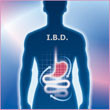A new report into the use of biological therapies to treat inflammatory bowel disease (IBD) has found that biosimilars are safe and effective for patients and if adopted can halve the cost of treatment in the UK.
Potential cost savings from use of biosimilars in the UK
Home/Reports
|
Posted 14/10/2016
 0
Post your comment
0
Post your comment

The report, which was published on 22 September 2016 by the Royal College of Physician on behalf of the IBD Biological Therapy Audit, includes data on the new infliximab biosimilars Inflectra and Remsima, which have been available in the UK since February 2015.
This is the fifth biological therapy report published from the UK IBD audit. It publishes national- and hospital-level findings on the efficacy, safety and appropriate use of biological therapies for patients newly started on biologicals since its inception on 12 September 2011 until 29 February 2016. This latest report covers the period between 1 March 2015 and 29 February 2016, and included 2,722 adult and 278 paediatric patients, with 596 and 82 being treated with the biosimilar, respectively.
Over the last 10 years, biological therapies have transformed treatment for people with IBD. Most of these drugs work by targeting a protein in the body called tumour necrosis factor-alpha (TNF-α). Overproduction of this protein is thought to be partly responsible for the chronic inflammation in people with IBD.
The availability of biosimilar infliximab provides an opportunity for substantial cost savings, reducing the cost of treatment from approximately GBP 10,000 per patient per year to less than GBP 5,000. However, there is little data available comparing originator infliximab (Remicade) to its biosimilar versions (Inflectra and Remsima). The analysis of short-term data conducted in the UK IBD audit shows that infliximab biosimilars are as effective as infliximab (Remicade). The short-term efficacy of biosimilar infliximab (Inflectra and Remsima) is equivalent to Remicade. A response was seen at three months in 84% of adult and 86% of paediatric patients treated with Inflectra/Remsima and 85% of adult and paediatric patients treated with Remicade.
Given that Inflectra and Remsima are far less expensive than Remicade, the authors recommend that ‘sites should adopt infliximab biosimilars to take advantage of significant cost savings’.
The report comes in the wake of a recommendation by the UK’s healthcare cost watchdog that rheumatoid arthritis patients indicated for treatment with biologicals should ‘start treatment with the least expensive drug’. The National Institute for Health and Care Excellence (NICE) published the guidance, which covers abatacept, adalimumab, certolizumab pegol, etanercept, golimumab, infliximab and tocilizumab, on 26 January 2016 [1].
Related article
Biosimilars group launched in UK to improve biosimilars uptake
Reference
1. GaBI Online - Generics and Biosimilars Initiative. Biosimilars in UK gain NICE recommendation [www.gabionline.net]. Mol, Belgium: Pro Pharma Communications International; [cited 2016 Oct 14]. Available from: www.gabionline.net/Policies-Legislation/Biosimilars-in-UK-gain-NICE-recommendation
Permission granted to reproduce for personal and non-commercial use only. All other reproduction, copy or reprinting of all or part of any ‘Content’ found on this website is strictly prohibited without the prior consent of the publisher. Contact the publisher to obtain permission before redistributing.
Copyright – Unless otherwise stated all contents of this website are © 2016 Pro Pharma Communications International. All Rights Reserved.
Source: Royal College of Physicians
Guidelines
US guidance to remove biosimilar comparative efficacy studies
New guidance for biologicals in Pakistan and Hong Kong’s independent drug regulatory authority
Policies & Legislation
EU accepts results from FDA GMP inspections for sites outside the US
WHO to remove animal tests and establish 17 reference standards for biologicals
EU steps closer to the ‘tailored approach’ for biosimilars development

Home/Reports Posted 21/11/2025
Advancing biologicals regulation in Argentina: from registration to global harmonization

Home/Reports Posted 10/10/2025
The best selling biotechnology drugs of 2008: the next biosimilars targets








Post your comment